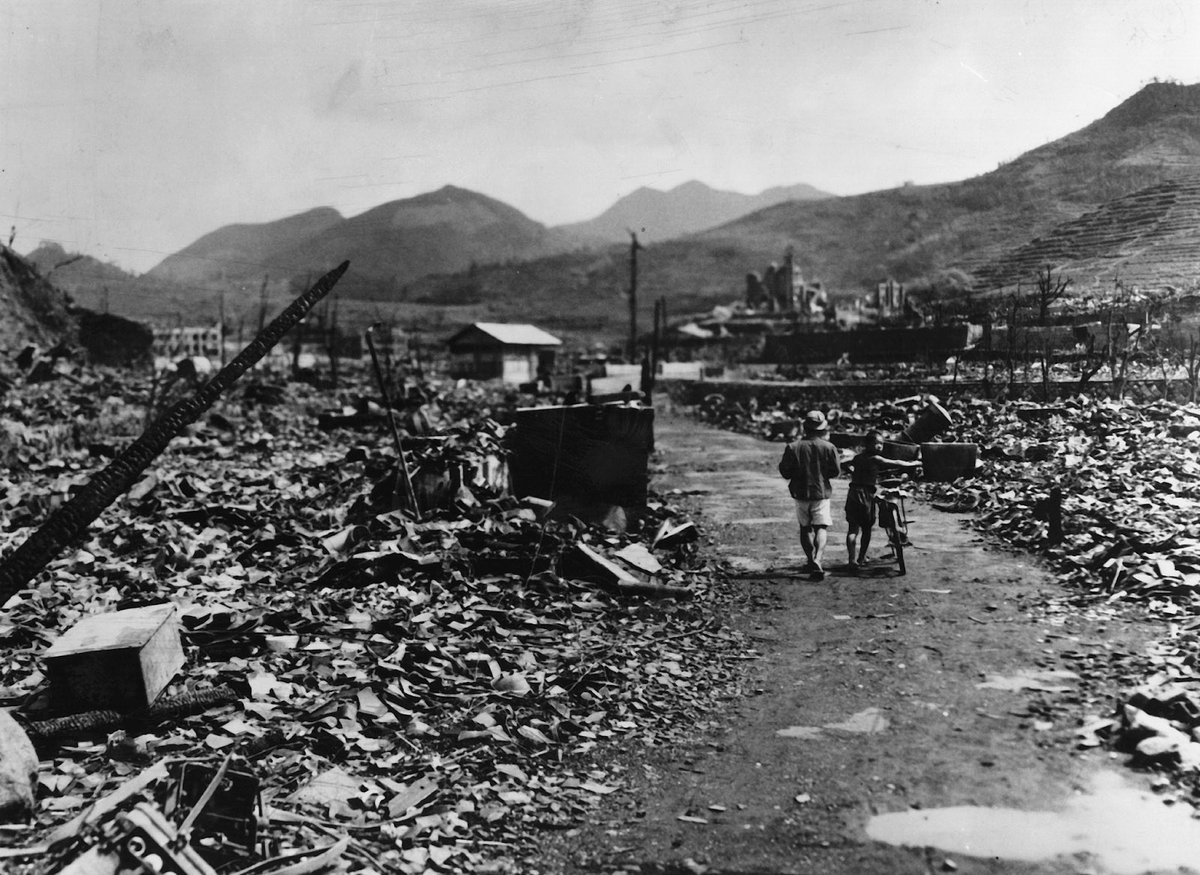There is a very real likelihood that the US is now attempting to set the stage for a nuclear false flag attack on Europe. 🧵
The current propaganda campaign to depict Putin as a rabid animal backed into a corner is designed to imply that Russia has few options left other than to senselessly resort to use of nuclear weapons. 







But this is completely at odds with reality!
By the metrics announced at the start of the conflict, Russia has already achieved a significant portion of what they set out to accomplish, namely: the security of the people in Crimea and the formerly eastern regions of Ukraine.
By the metrics announced at the start of the conflict, Russia has already achieved a significant portion of what they set out to accomplish, namely: the security of the people in Crimea and the formerly eastern regions of Ukraine.

And while the current Ukrainian military is now sustained entirely through NATO support, the public basis for that support is waning rapidly, particularly as winter approaches and public anger escales over leaders’ mismanagement of European energy security. 

The sabotage of the Nord Stream pipelines and recent comments by former CIA director and army general Petraeus indicate that US strategy may now be shifting in response to the new phase the conflict is entering. 



Time and time again, we’ve seen that the west does not wait around for the perfect casus belli to materialize on its own when they can manufacture one instead, as the recent failed attempt to cause a nuclear disaster at the Zaporizhzhia NPP demonstrates.
https://twitter.com/bidetmarxman/status/1511253080381161472
The origin of a nuclear attack won’t be immediately apparent. But the recent sabotage of Nord Stream is a perfect demonstration of how there’s no theory western media can push, no matter how nonsensical, that large portions of the western audience won’t unquestioningly believe. 







In spite of the media storm that will ensue, only one country has ever demonstrated their willingness to preemptively use nuclear weapons against another. Their continuing refusal to adopt a no first-use policy is strong indication that this willingness hasn’t changed. 



Since the dismantling of the USSR, the concept of “mutually assured destruction” (MAD) has continued as the popular framework for the nuclear weapons theory, in which MAD remains a reliable deterrent against nuclear first-use.
In reality, MAD has only ever applied to direct confrontation between nuclear superpowers and is very likely outdated within the context of a single small yield tactical nuclear weapon (<1 kt) used in a proxy war, especially if deployed as part of an atrocity propaganda campaign.
It is hard to conceive of a single action that could generate a more unified global condemnation than the use of a nuclear weapon in a conflict for the first time in over 70 years. Before the dust has even settled, countries will be called on to pick a side.
Therefore, we must understand that the impetus for escalating conflict with Russia is more fundamental than simply the current US admin not wanting to be seen as “losing”: a loss will signal to the world that western imperial hegemony can be resisted and resoundingly defeated.
This signal will only accelerate the bifurcation of the world into countries which remain aligned with the west, increasingly to their detriment, and countries struggling free of western domination. And this bifurcation is being led by, and largely facilitated by, China.
Because of this, the US’s ultimate goal is to stifle China by isolating them from as many markets as possible. But the US has no hope of isolating China’s rise if it doesn’t have a completely compliant Europe that is willing to acquiesce to US unilateral demands. 



Thus the Nord Stream sabotage and the threat of a nuclear false flag should be considered within the following context:
What will it take to bring the EU to its knees and permanently cleave it off from not just Russia but China as well?
What will it take to bring the EU to its knees and permanently cleave it off from not just Russia but China as well?
• • •
Missing some Tweet in this thread? You can try to
force a refresh
























